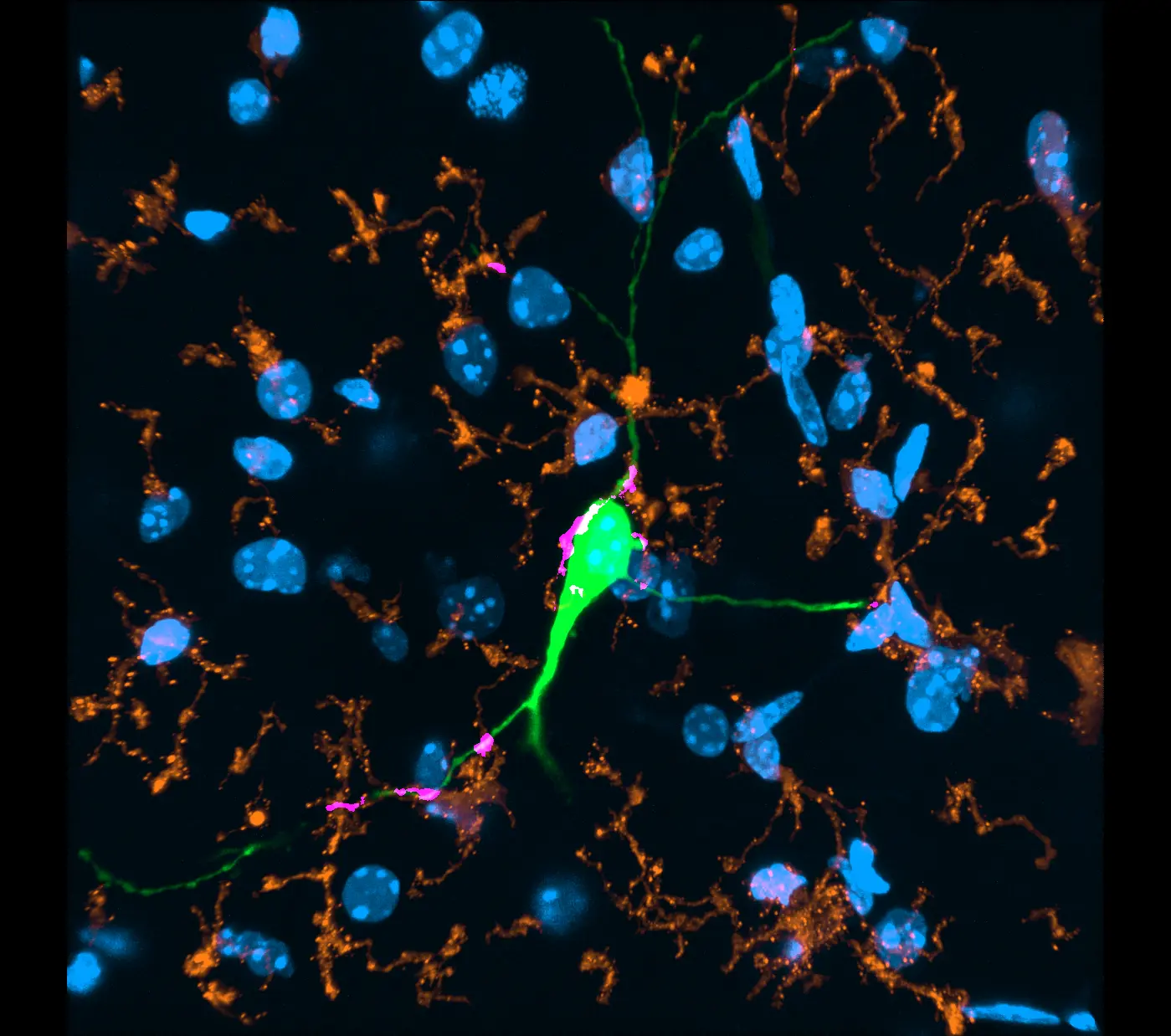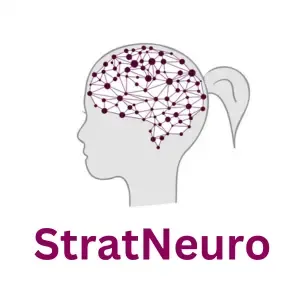StratNeuro Research
StratNeuro addresses fundamental questions in neuroscience and builds on leading expertise at Karolinska Institutet, Umeå University and KTH. The programme brings together researchers from basic and clinical sciences.

Research areas
1. Molecular and Cellular Neuroscience
- Neurogenetics: Investigating the genetic basis of neural function and dysfunction
- Neurodevelopment: Studying the molecular mechanisms that guide the development of the nervous system
- Synaptic Function and Plasticity: Exploring how synapses form, function, and adapt during learning and memory processes.
2. Systems Neuroscience
- Neural Circuits: Mapping and understanding the complex networks of neurons that underpin behavior and cognition.
- Sensory Systems: Examining how sensory information is processed and integrated by the brain.
- Motor Control: Investigating the neural basis of movement and coordination.
3. Cognitive and Behavioral Neuroscience
- Cognition and Memory: Studying the neural mechanisms underlying memory formation, storage, and retrieval.
- Emotion and Behavior: Exploring the brain regions and circuits involved in emotional regulation and behavioral responses.
4. Clinical and Translational Neuroscience
- Neurodegenerative Diseases: Researching the causes and potential treatments for diseases like Alzheimer's, Parkinson's, and ALS.
- Psychiatric Disorders: Investigating the neural underpinnings of conditions such as depression, schizophrenia, and bipolar disorder.
- Neuroimmunology: Studying the interactions between the nervous system and the immune system, particularly in the context of diseases like multiple sclerosis.
5. Neuroimaging and Neurotechnology
- Advanced Imaging Techniques: Developing and applying cutting-edge imaging technologies to visualize brain structure and function.
- Brain-Machine Interfaces: Exploring technologies that connect the brain with external devices to restore or enhance neural function.
6. Developmental and Pediatric Neuroscience
- Neurodevelopmental Disorders: Researching conditions such as autism, ADHD, and intellectual disabilities.
- Early Life Stress and Brain Development: Investigating how early environmental factors influence brain development and later-life outcomes.
7. Pain and Sensory Neuroscience
- Pain Mechanisms: Studying the neural and molecular basis of pain perception and chronic pain conditions.
- Sensory Processing: Understanding how sensory signals are processed and interpreted by the nervous system.
StratNeuro's interdisciplinary approach and state-of-the-art facilities enable groundbreaking research in these areas, contributing significantly to the global understanding of neuroscience and the development of novel therapies for neurological disorders.
 Photo: StratNeuro
Photo: StratNeuroResearch groups in Neuroscience at Karolinska Institute
Learn more about Research groups in Neuroscience at Karolinska Institute
Impact on society
Burden of disease
Brain disorders are among the most common causes of disability in high income countries. The European Brain Council published a report in 2006 stating that 1/3 of all people in Europe will be affected by cognitive and motor dysfunctions during their lifetime. Such dysfunctions not only lead to the suffering of patients and family, they also result in enormous costs for society (€ 386 billion in Europe). In addition to direct medical costs, there are large costs for supporting people who are not able to take care of themselves, and indirect costs (such as those for special schools, sick leave and unemployment).
Life expectancy for persons with neuro-developmental disorders (NDDs) is similar to that of the population in general, and therefore the societal support is required for a long time. Life expectancy is increasing, and the incidences of neurodegenerative disorders such as Alzheimer disease increase exponentially in higher ages, and this means that these diseases will lead to higher societal costs in the future. The number of persons in Sweden with dementia is ~150,000, MS ~14,000 and Parkinson ~20,000. The annual cost for dementia in Sweden has been estimated to be € 5 billion per year. A review of the current level of resource allocation to brain research in the EU showed that increased efforts in research, health care and teaching are required to meet the huge cost and burden of brain disorders.
The research will have a great impact on the burden of disease for society and afflicted individuals. It will enhance the autonomy of victims, lessen the suffering of patients and families, and reduce the costs for society. For example, by delaying the onset of Alzheimer’s disease (AD) by 5 years through early intervention, we would reduce the prevalence of the disease by 50%.
Collaboration between academia and industry
The aim is to make neuroscience at Karolinska Institutet an attractive partner for industry, allowing it to grow and prosper in Sweden. This will be achieved by for example strengthening the infrastructure for clinical trials, and by characterizing patients with new multi-level biomarkers, making it possible to stratify patient groups and to follow the effect of treatment.
